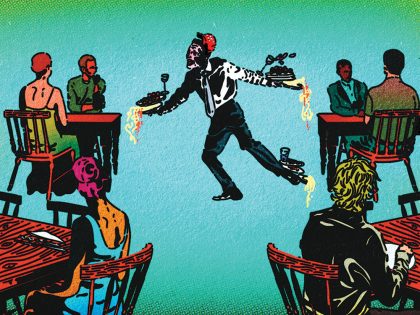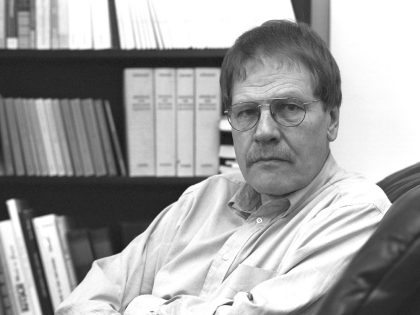Paint the Town Red
Jacobin contributor Paul Heideman’s reading list on municipal socialism explores how workers’ movements, from Milwaukee to Liverpool, built power at the local level — and how they were defeated.
Page 1 of 4Next
Paul Heideman holds a PhD in American studies from Rutgers University–Newark.
Jacobin contributor Paul Heideman’s reading list on municipal socialism explores how workers’ movements, from Milwaukee to Liverpool, built power at the local level — and how they were defeated.

While the Trump administration’s draconian immigration policies may hurt businesses reliant on undocumented labor, the fractured capitalist class won’t stand up to the president.

Workers must organize for power, while capitalists wield it individually through property rights. This fundamental asymmetry, as German sociologist Claus Offe explained, creates a chain of obstacles that make working-class collective action uniquely difficult.

The electoral victories of Donald Trump and remaking of the Republican Party in his image can’t hide a basic fact: his party is fractured and weak.

The GOP is now a hegemonic force in US politics. But much of that dominance is predicated on Donald Trump’s personal rule, itself made possible by internal GOP weakness and business elites’ political disorganization.

Defeating the GOP’s proposed Medicaid cuts, which will then fund huge tax cuts for the rich, is an urgent priority. It’s a chance to reestablish the popularity of the welfare state in American politics and hand Donald Trump and Elon Musk a much-needed defeat.

Many assumed Donald Trump would be governing in a second term with no guardrails. But guardrails are in fact still there. Understanding these constraints is key to defeating him.

The Democratic Party has become, improbably, the preferred party of the elites.

The Democratic Party has become, improbably, the preferred party of American capital. But in doing so, it’s lost more and more of its working-class base.

Donald Trump wants the ideology of William McKinley and Gilded Age Republicanism, but with a totally different social base. It won’t work.

Socialists in the US are more likely to be experts on the Russian Revolution than the American civil rights movement. That’s a mistake: this homegrown revolution is a strategic guidebook for winning social change today.

Kevin McCarthy’s ouster as House speaker shows just how hopelessly divided the Republican Party is. But divided doesn’t mean harmless — the hard right can still inflict pointless suffering on the millions of people who depend on government services.

Abortion bans aren’t a capitalist plot to increase the labor supply. But they are an outgrowth of the brutal inequalities of capitalism, which systematically subordinates women to men.

Republican populism may have a new sugar daddy, but they’re hawking the same old solutions.

This May Day, we’re celebrating the life of George Woodbey, a former slave who became a leading socialist. Though he’s often forgotten today, Woodbey’s life speaks to the crucial connection between labor struggles and fights against racial oppression.

Critics often say the working class doesn’t fight back against exploitation because it’s confused about its real interests. But this ignores how capitalism itself leads workers to resign themselves to their situation — and how we can overcome that resignation.

Rightward Republican Party radicalization is well-positioned for continuing political success, even as it promises to bring political and economic instability for the country and the world with it.

Pandemic measures like the stimulus temporarily helped and empowered working-class and vulnerable people. And that’s quickly becoming a problem for an economy based on their hyper-exploitation.

The GOP won Virginia not with a Trump-style reactionary, but a boring old country-club Republican. That spells bad news for a Democratic Party banking on running against Trump-style conservatives.

The middle class isn’t going away — and we’re not sure they’ll help us.